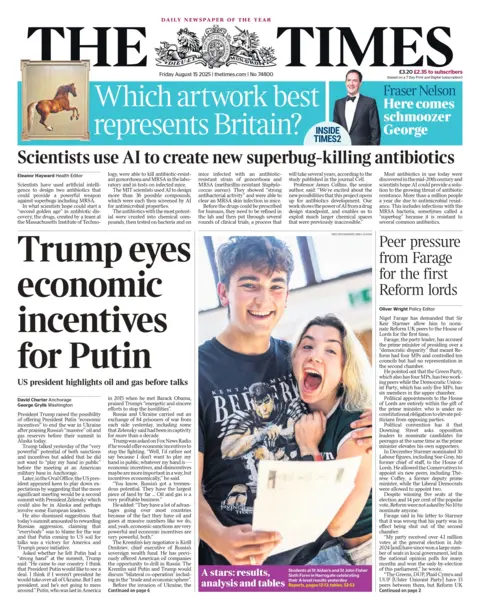The recent headlines focusing on the prospect of a significant diplomatic deal involving Vladimir Putin and the observance of the 80th anniversary of Victory over Japan Day (VJ Day) highlight the interplay between current geopolitical tensions and historical reflections. As world leaders prepare for negotiations, particularly between President Donald Trump and President Putin, the overarching message appears to be a willingness on both sides to explore avenues for agreement concerning pressing global issues.
In the lead-up to the Alaska summit, Trump has been vocally optimistic about the possibility of striking a deal with the Russian President. According to Trump, Putin is “ready to make a deal,” a statement that stirred conversations among analysts and leaders across various political spectrums. This meeting is set against a backdrop of economic incentives, with Trump emphasizing Russia’s vast reserves of oil and gas. However, skepticism remains in the air as concerns grow over Trump’s previous comments suggesting a potential division of territories between Moscow and Kyiv.
The significance of VJ Day cannot be understated. This date commemorates the end of World War II and reflects on the sacrifices made by countless soldiers and civilians. As Admiral Sir Tony Radakin, head of the British armed forces, noted in the Daily Telegraph, the legacy of these heroes serves as a reminder that freedom must be defended. He articulated a resolute stance against being intimidated by Putin, underscoring the strength of NATO and the collective resolve to maintain global stability in the face of aggression.
As the world watches the unfolding dynamics of international diplomacy, various newspapers have dedicated front-page coverage to these interconnected stories. While the Daily Express pays homage to the bravery of World War II veterans with the line reminding us to safeguard freedom, the Daily Telegraph features Radakin’s admonition against relenting to Putin’s posturing. The Daily Mail and the Guardian echo sentiments related to the Alaska summit and the potential ramifications of any agreements formed between the leaders.
Further complicating the situation, aspects of domestic policy convergence are seen in reports highlighting ongoing issues like rising healthcare costs in the UK, particularly with the anticipated price hikes of medications such as the revolutionary fat jab, Mounjaro. Concerns regarding the fiscal implications have spurred discussions about broader economic challenges. As the US health insurance discourse continues to evolve under Trump’s presidency, many are keenly aware of how such economic conditions intersect with diplomatic relations.
Amid these complex layers of international politics, there is a recurring narrative of vigilance and acknowledgment of historical sacrifices. The legacy of VJ Day serves as a poignant reminder of the unyielding spirit that prevailed during one of the darkest periods of the 20th century. The reflections on the sacrifices of those who fought in the war challenge contemporary leaders to rise to the occasion and foster peace rather than conflict.
The discourse surrounding diplomatic engagements between major world powers underscores the necessity of mutually beneficial resolutions in an increasingly polarized global landscape. As the weight of history looms large over modern negotiations, it could either fortify alliances or exacerbate existing tensions. Hence, the outcome of the upcoming Alaska meeting will be significant not only in terms of economic incentives but also regarding the long-term trajectory of international relations in a changing geopolitical order.
In conclusion, the convergence of the potential diplomatic overtures between Trump and Putin with the commemoration of VJ Day invites a deeper engagement with both historical narratives and contemporary realities. The echoes of the past are as relevant today as nations grapple with questions of sovereignty, security, and peace. As the world keeps an eager eye on the unfolding events, these discussions will shape not only the future of US-Russia relations but also the broader global landscape in navigating peace and cooperation amidst uncertainty.












